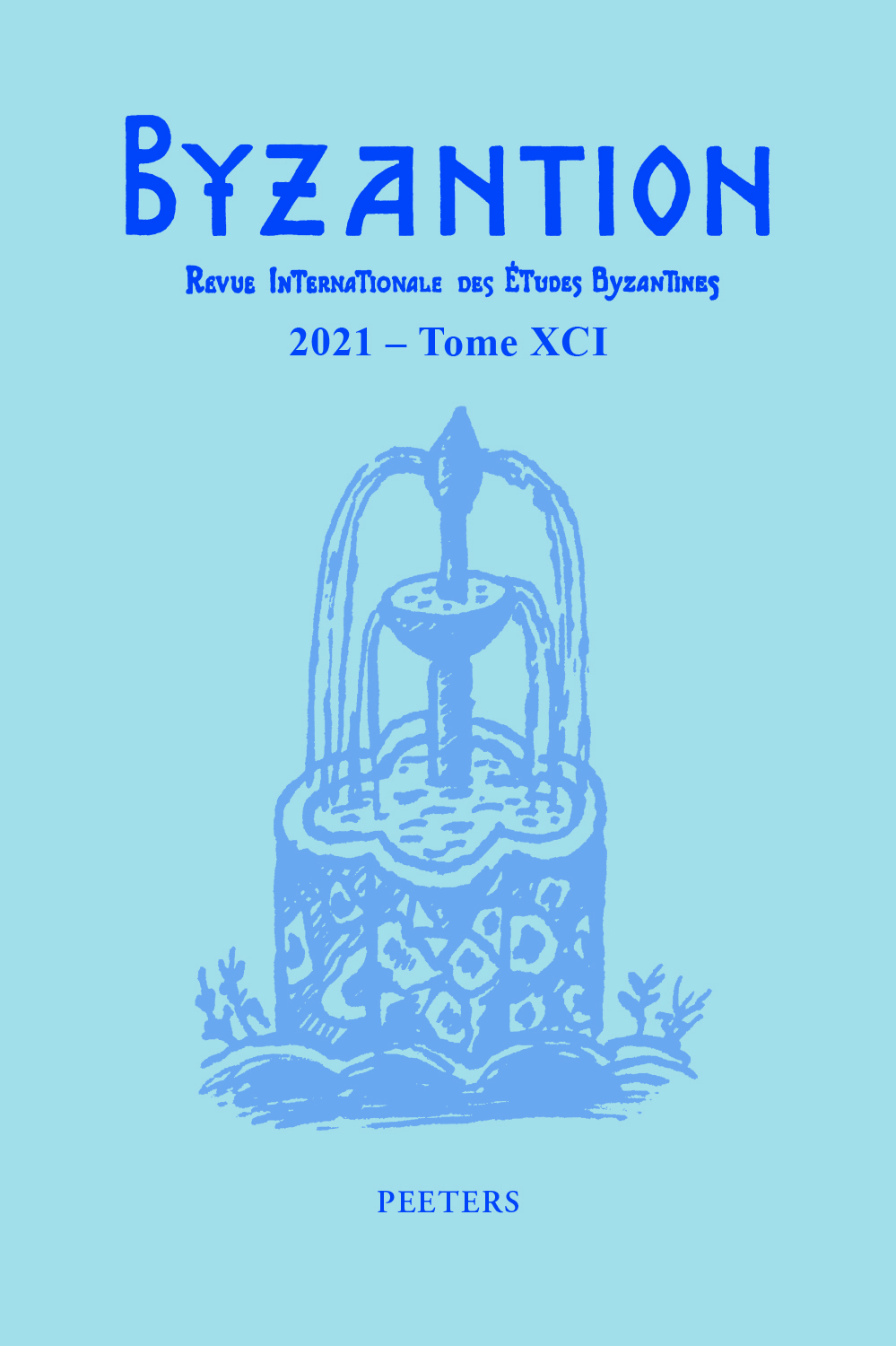 previous article in this issue previous article in this issue | next article in this issue  |

Preview first page |
Document Details : Title: Les Géorgiens dans les textes byzantins jusqu'à l'an mille Subtitle: Approche lexicale Author(s): VAN ELVERDINGHE, Emmanuel Journal: Byzantion Volume: 84 Date: 2014 Pages: 433-483 DOI: 10.2143/BYZ.84.0.3049191 Abstract : Mediaeval Georgia came into being only by 1008 as a unified polity. Byzantine authors therefore – at least to the 10th century – tell nothing about 'Georgians' as a whole; rather, they recognize several distinct tribal or ethnic entities. The survey of the various guises under which Georgians come up in Byzantine texts up to the 10th century constitutes the core of this paper. Each population is thus provided with a thorough description of the lexical items used in Greek to designate it. In close connection with this lexicological focus, the investigation also encompasses diachronic and etymological perspectives, as well as some clues regarding the identification of the given ethnos. The study eventually allows shedding some light on the attitude Byzantine authors exhibited facing the manifold Georgian regions and peoples: how were lexical devices developed, and what does their use reveal about Byzantine perceptions of the ethnic, spatial and historical reality? The 'Georgian case' in turn illustrates some well-known tendencies general to Byzantine literature or peculiar to some author or period. |
|


